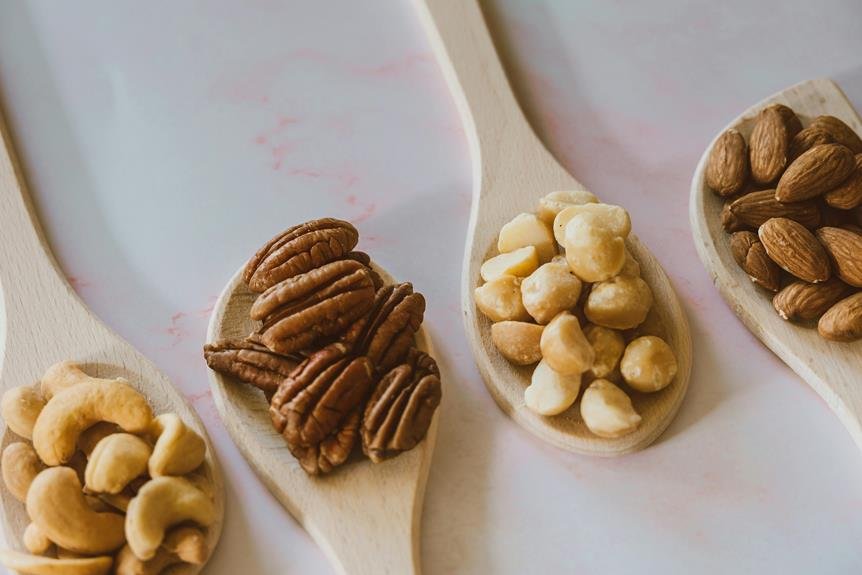
When it comes to protein consumption, timing is key for optimizing your health and fitness goals. You might be wondering, "Is there a specific window for the best time to eat protein?" Well, the answer lies in understanding how your body utilizes protein at different times throughout the day. By strategically incorporating protein into your daily routine, you can maximize its benefits for muscle repair, recovery, and overall well-being. So, let's explore the best times to fuel your body with this essential nutrient and take your health journey to the next level.
Benefits of Protein Timing
When considering the benefits of protein timing, it's important to understand how the timing of your protein intake can impact your overall health and fitness goals. Consuming protein at strategic times throughout the day can significantly aid in muscle repair and growth. For instance, having a protein-rich meal or snack after a workout can help replenish amino acids in your muscles, promoting recovery and muscle protein synthesis. This is crucial for maximizing the benefits of your exercise routine and achieving your fitness objectives.
Moreover, incorporating protein into your breakfast can kickstart your metabolism and help you feel fuller for longer, potentially aiding in weight management. By spreading out your protein intake evenly across meals, you can also support a steady supply of amino acids for muscle maintenance and repair throughout the day.
In essence, being mindful of when you consume protein can optimize your body's utilization of this essential nutrient, contributing to improved muscle strength, recovery, and overall well-being.
Pre-Workout Protein Consumption
To optimize your workout performance, consider the timing and types of protein you consume before your exercise session. Consuming protein before a workout can provide your muscles with the necessary amino acids needed for muscle repair and growth. Aim to consume a protein-rich snack or meal about 30 minutes to an hour before your workout. This timing allows for optimal digestion and absorption of the protein, ensuring that it's readily available for your muscles during exercise.
Choose easily digestible protein sources such as lean meats, poultry, fish, eggs, dairy products, or plant-based options like tofu or legumes. These proteins can help prevent muscle protein breakdown during your workout and support muscle recovery post-exercise. Additionally, consuming carbohydrates along with your pre-workout protein can provide energy for your workout and further support muscle protein synthesis.
Experiment with different protein sources and timing to find what works best for your body and enhances your workout performance. Remember, consistency in pre-workout protein consumption can lead to improved muscle strength, endurance, and overall exercise performance.
Post-Workout Protein Intake
Consider incorporating protein into your post-workout routine to aid in muscle recovery and growth. After a workout, your muscles need essential nutrients to repair and rebuild. Consuming protein post-exercise helps kickstart this process by providing the necessary building blocks for muscle synthesis.
Ideally, aim to consume protein within 30 minutes to an hour after your workout for optimal results. This window, often referred to as the 'anabolic window,' is when your muscles are most receptive to nutrients. Protein sources like whey protein shakes, lean meats, eggs, or plant-based options can all be beneficial choices for post-workout consumption.
The amount of protein needed post-workout varies depending on factors such as your body weight, workout intensity, and fitness goals. As a general guideline, consuming around 20-30 grams of protein after a workout is recommended to support muscle recovery.
Protein Timing for Bedtime
After fueling your muscles post-workout, it's also important to consider the timing of protein intake before bedtime to support overnight muscle recovery and growth.
Consuming protein before sleep can be beneficial as your body goes into a fasting state during the night, making it an optimal time for muscle repair and growth. Casein protein, a slow-digesting protein, is often recommended before bedtime as it releases amino acids gradually, providing a sustained protein supply throughout the night. This can help prevent muscle breakdown and promote muscle protein synthesis during sleep.
Aim for a protein source that combines both fast and slow-digesting proteins for bedtime consumption, such as Greek yogurt with nuts or a protein shake with added casein.




